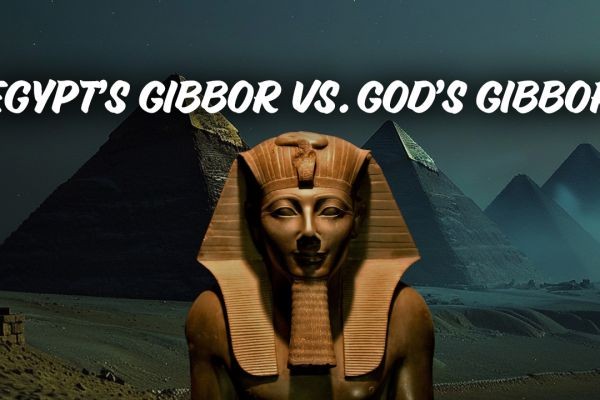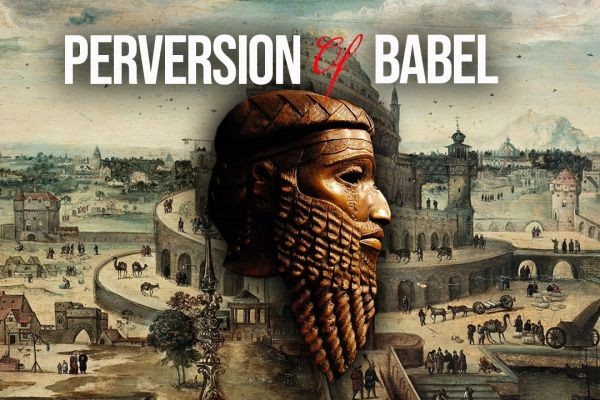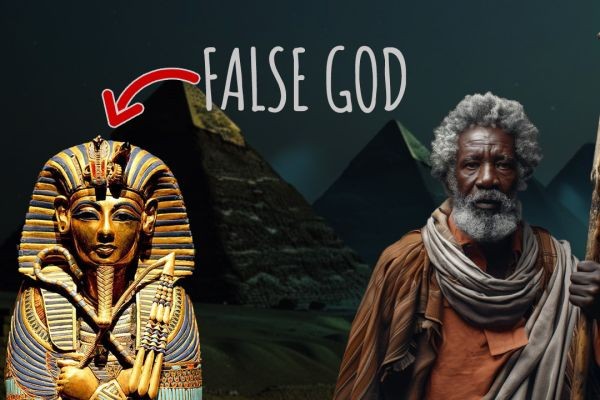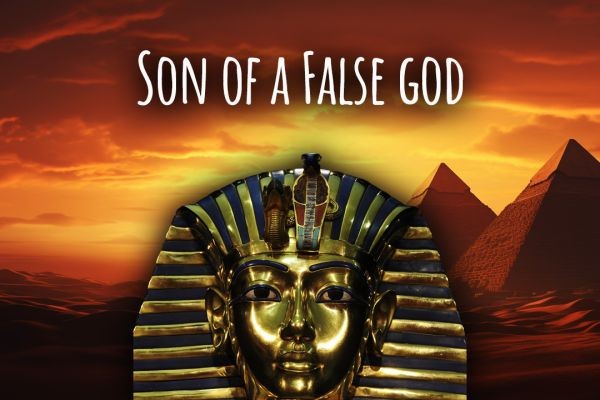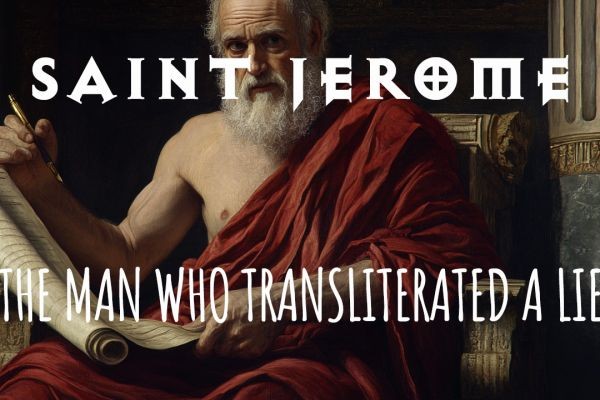A Follow Up To Why Yahushuah Treaded On the Sea
05/02/25 • 245 Vues
In a previous article, I wrote about the parabolic pantomime of Yahushuah treading on the sea. I stated that this pantomime was a mocking of the Canaanite beliefs concerning Athirat, or, as her name is in Hebrew, Asherah. Asherah, the main woman of EL, is the mother of the gods. These gods made up what is called “the Elohim,” with EL, the progenitor of the gods, at the head of the assembly.
In the article, “Why Yahushuah Treaded on the Sea?” I introduced you to a poem, written in Ugarit, concerning Athirat. The passage seems to mean that Athirat is going fishing and preparing a meal for her husband, El. However, the Canaanites, who adopted the Shemitic language, use imagery, parallelism, and parables within their writings to conceal the meaning and significance of their work.
In the poem that I shared in that article, I stated that scholars debate the meaning of the title. They don’t know if the designation “Athirat means Lady of the Sea” or “Lady who treads on the Sea.” I said you can be sure that the designation means “Lady who treads on the Sea,” because Yahushuah is mocking the belief that the Canaanites held in this poem by performing a parabolic pantomime—that is, by walking on the sea. What I didn’t tell you was the meaning of the poem, so let me do that in this article.
Here is the poem:
Ugaritic text KTU 1.4 ii 3-11 & part of my translation:
3-4 aḫdt.plkh[.b ydh]/ [She took her] [weaving [wooden spindle] tool] [in {her} hand]
plk.tʿlt.b ymnh / [an exalted] [weaving [wooden spindle] tool] [in her right hand]
5 npynh.mks.bšrh/tmtʿ [her nets] [{which} covered her flesh] [she carries]
6-7 .mdh.b ym. [{her} garment] [in {the} Sea]
ṯn/npynh.b nhrm/ [{her} two] [nets] [in {the} rivers]
8-9 štt.ḫptr.l išt/ [she sets] [a pot] [on fire]
ḫbrṯ.l ẓr.pḥmm [a pot] [on top of] [hot coals]
10-11 tʿpp.ṯr.il.d pid/ All the while she is servile before Bull Ilu the Beneficent
tġẓy.bny.bnwt [Deferential] [{to the} builder] [of creation]
The text in lines three and four is speaking about the fact that Athirat was a weaver who weaved her garments, but it also shows in line five that she has weaved something long enough that will serve as a net, which she will use as she is treading on the Yam—the sea. Lines 6 and 7 tell us that her garment is her net, which is in the sea. It also says that there are two nets in the river. The sea and the river describe the same reality. The purpose for two nets is so the two attendants of Athirat can assist her in the purpose for which she is treading on the sea. The two assistants are called “fishers of Athirat,” or fishers of men. This terminology should be familiar because Yahushuah designates the same title to his disciples.
“Now as Jesus was walking by the Sea of Galilee, He saw two brothers, Simon who was called Peter, and Andrew his brother, casting a net into the sea; for they were fishermen. And He *said to them, “Follow Me, and I will make you fishers of men.” Matthew 4:18-19 KJV
Lines 8 & 9 inform us of the intent of the poem. Athirat is treading on the sea to capture something in it. And whatever it is, her plan is to chop it into pieces and cook a meal to feed her husband, EL. This song is not just a poem about fishing. It is a poem about how Athirat treaded on the sea to conquer the many-headed serpent who rules it.
In the Canaanite/Ugarit/Phoenician tradition, Yam, the sea serpent, was the name of the god who ruled in the sea. He was not only the many-headed serpent in the sea but was also the personification of the sea. The sea was considered the realm of the dead, much like the sea of reeds, horribly translated as Red Sea, in Egyptian mythology.
The Canaanites in the area of Tyre and Sidon were traders who sailed the sea as a means of trade. They feared the sea and believed that it contained a great serpent, evidently called Yam. They worshipped the goddess Athirat, the lady who trod on the sea, because she was believed to be victorious over it. Athirat walking on the water showed her complete superiority over the waters of the sea and death.
Yahushuah is mocking this belief because he is the one who will have victory over death. When one dies spiritually, they are under the serpent's control. The parabolic pantomime of Yahushuah treading the sea conceals this truth. It signifies his victory over death and his complete superiority over the serpent in the sea, known as Yam. Another thing that I need to mention is this: Yam, the serpent in the sea, is also called Judge River or Dan Nahar in Hebrew. Just a key point you need to keep in mind when I openly teach those whom God sends to me when the time comes. Here is what the prophets have written to criticize the beliefs of the Canaanites, which our ancestors mistakenly adopted instead of following the Torah given to Moses.
“In that day the LORD will punish Leviathan the fleeing serpent, With His fierce and great and mighty sword, Even Leviathan the twisted serpent; And He will kill the dragon who lives in the sea.” Isaiah 27:1 KJV
I know it is hard for those who do not possess the Wind of God to see what is happening here, but what you need to understand about the truth is that the prophets speak in the same terms that the Canaanites spoke when they wrote what they wrote. So I will tell you plainly what the prophet is saying here. Leviathan in Hebrew means twisted sea serpent." He is the beast that lives in the sea. The text speaks metaphorically about Satan. This current age is ruled by the serpent. Satan, the serpent, rules the world, which is parabolically depicted as “HaYam,” the sea—the realm of the dead.
“We know that we are of God, and that the whole world lies in the power of the evil one.” 1 John 5:19 KJV
God parabolically considers the world—this present age— as the sea, which is the parabolic land of the dead. And it should not be a surprise that he considers the inhabitants of this world dead.
“And you were dead in your trespasses and sins, in which you formerly walked according to the course of this world, according to the prince of the power of the air, of the spirit that is now working in the sons of disobedience.” Ephesians 2:1-2 NASB
Though this is speaking in past tense, it is speaking to those who are engendered above—that is, born again and has ceased from committing sin—seeing that it says, “which you formerly walked according to the course of this world…” This is for people who have retired from their old lives. You were dead in your sins, but you are now alive in Hamashiach. You are no longer obeying the dictates of your flesh to do those things that are displeasing to God. Simply put, you no longer sin! But you're still living in the land of the dead, waiting to be resurrected and live forever. Amen.
You'd admit it if you were honest: I told you something new. I’ve shown you all of the facts to explain why Yahushuah speaks this parable. And what I am teaching isn't new; you just haven't heard it before because Christianity and those who seek to live the life of our ancestors who created Judaism didn't know the truth. They are still assuming that they do. If you are listening closely, all that is offered to you is escaping America; they stole our identity, we are the true Israelites, you have to continue to sacrifice animals for sins that were already forgiven, and celebrate the feast days to avoid God's wrath when they find their fulfillment in Yahushuah Hamashiach. They can't show you the more salient points hidden in the writings of Moses and the prophets because they still have a veil over their eyes.
“Again, the kingdom of heaven is like a dragnet cast into the sea and gathering fish of every kind; and when it was filled, they drew it up on the beach; and they sat down and gathered the good fish into containers, but the bad they threw away. So it will be at the end of the age; the angels will come forth and take out the wicked from among the righteous, and will throw them into the furnace of fire; in that place there will be weeping and gnashing of teeth.” Matthew 13:47-50 KJV
To understand this parable, you must understand the imagery that is used. First, one can not understand the parable without the parabolic imagery of the kingdom of God. Let's examine a section of another parable to gain insight into the kingdom of God.
“Hear then the parable of the sower. When anyone hears the word of the kingdom and does not understand it, the evil one comes and snatches away what has been sown in his heart. This is the one on whom seed was sown beside the road.” Matthew 13:18-19 NASB
The kingdom of God/Heaven is the word of God. That word is, in this case, like a seed that is sown into a man’s heart. But the kingdom of God, that word, is also like a net that a man tosses into the sea. And this is the meaning of the first part of the parable.
“Again, the kingdom of heaven is like a dragnet cast into the sea, and gathering fish of every kind; and when it was filled, they drew it up on the beach; and they sat down and gathered the good fish into containers, but the bad they threw away. So it will be at the end of the age; the angels will come forth and take out the wicked from among the righteous, and will throw them into the furnace of fire; in that place there will be weeping and gnashing of teeth.” Matthew 13:47-50 KJV
Now, as I said, the sea is the realm of the dead, where the serpent—the beast—rules the inhabitants in the sea. I told you that in the Canaanite/Ugaritic/Phoenician text concerning Atharit, the goddess had two assistants. The goddess referred to these assistants as "fishers." Yahushuah called his disciples by this designation. Therefore, the angels mentioned in this parable are not angels from Heaven in the traditional sense of the term. Anyone called to preach or teach God’s word is also an angel. The transliteration, which Satan frequently confuses, refers to messengers. Satan has influenced the minds of translators to transliterate the Greek term “angelos” instead of translating it because he wants to hide the function of the two witnesses that are set to come to testify and to do their final work before the age is complete. Satan aims to obscure your understanding of the scriptures.
Those two messengers will teach the truth to those who are engendered above to believe it and not make the truth available to those who have shown no interest in believing the truth found in their message. Not revealing the truth to impostors is how they will be cast into the furnace of fire. Yahushuah expressed this idea differently elsewhere; let's examine it:
“And when he had said this, he breathed on them, and saith unto them, Receive ye the Holy Ghost: Whose soever sins ye remit, they are remitted unto them; and whose soever sins ye retain, they are retained.” John 20:22-23 NASB
The Greek word that is translated as “remit” is the term aphiēmi, which is translated as “forgive” 47 times elsewhere. So when Yahushuah says, “Whose soever sins ye remit…” actually means, “Whose soever sins ye forgive…” Yahushuah gave his disciples the authority to forgive sins in the sense that, like I said above, by determining who can hear the truth, they are empowered to forgive a person of their sins. Their job was to determine who actually believed the basic gospel of the kingdom of heaven based on the fruits they saw in their personal lives.
The modern-day church has fallen far from understanding this concept, which is why there are many pretenders sitting in the pews and behind the pulpits.
This is evident in the parable of the dragnet. The word of the Kingdom, known as the dragnet, finds its way into the land of the dead, also known as Yam, the sea. In the land of the dead, the place that the sea serpent rules, are all sorts of fish—clean and unclean. The clean, those who are righteous, are stored in containers, and those who are wicked, unclean, are cast away. Their fate is to the wrath of the Living God, whose wrath burns hotter than a nuclear flame. But you don’t have to believe me. When the time comes, you will know you're there.
So it will be at the end of the age; the angels will come forth and take out the wicked from among the righteous, and will throw them into the furnace of fire; in that place there will be weeping and gnashing of teeth.” Matthew 13:47-50 KJV
Lastly, I would like to emphasize the importance of having the truth in your possession. Without that, you will have the only other obvious thing— the lies of the serpent who rules over the sea, the realm of the dead. If you rely on your genes to save you, you're spiritually blind. Our ancestors are the true genetic descendants of Jacob, and God destroyed them by placing every terrible curse on their lives because they denied the truth. You are in captivity and still experiencing the curses, which is why your enemies treat you like they do.
It is ignorant to believe that just because you have discovered your true identity, you are automatically on God’s favorable side. Lol, NO! It just shows that, just like our ancestors, you still believe lies, and Moses was correct about you and our ancestors. Such a position is disastrous. Without the truth, God’s wrath still burns hot against you, and that is why God called me to teach the truth. My job is to point out the meaning and significance of what I find hidden in the writings of Moses and the prophets. Your belief or disbelief in that will be to your benefit or detriment.
Shalom!


